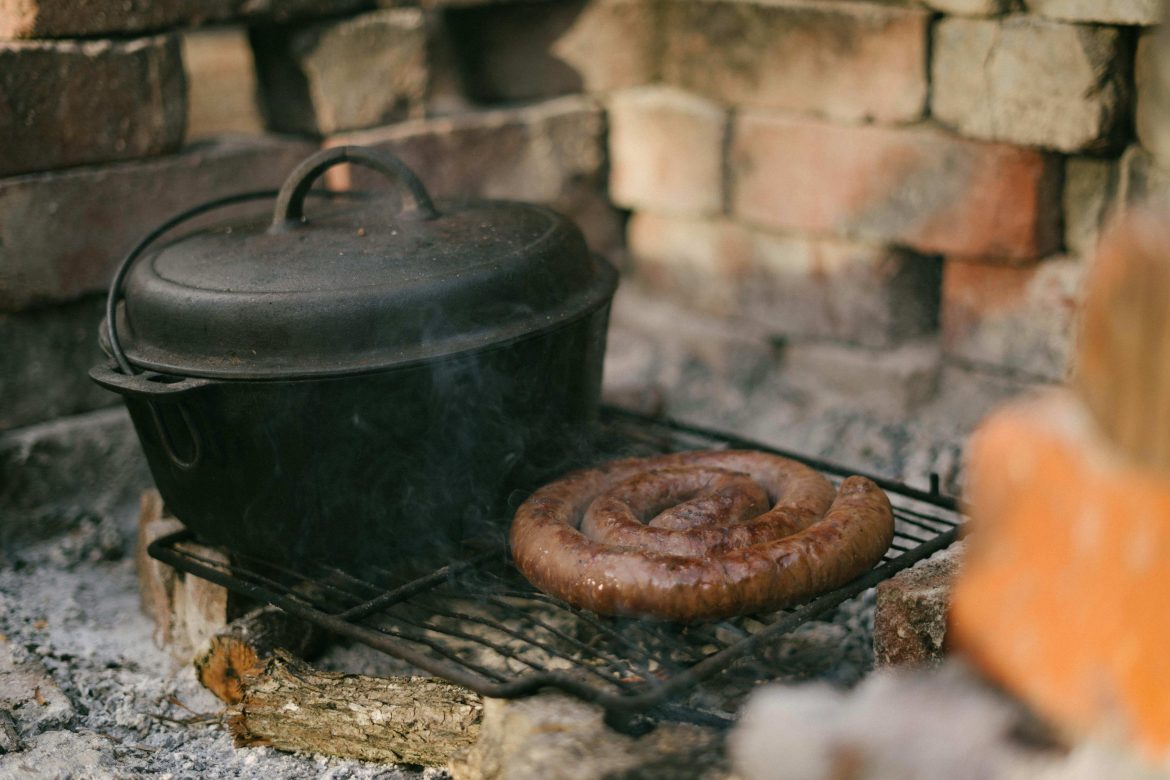A well-maintained cast iron cookware takes time, patience, and consistent care. However, this doesn’t mean it’s difficult to keep or not tough enough to last a lifetime. To help you get the most out of your cast iron cookware and turn it into an heirloom that your grandkids would love to inherit, here are a few dos and don’ts to follow when caring for your hardy cookware.
Dos
The amount of information online on the proper caring and maintenance of cast iron is overwhelming. You’re not sure whether to follow ‘user242’s advice over the official Martha Stewart site. But fear not! We’ve rounded up the ultimate dos you should be following:
- Use dish soap: Dish soap, paired with a soft sponge, is not abrasive and won’t scrape any of the seasoning you’ve worked so hard on. Dish soap is perfect for degreasing cast iron, preventing harmful bacteria growth and any leftover grease from turning rancid. If you’ve got tougher food bits to deal with, make a paste with kosher salt and a few tablespoons of oil. Scrub using a paper towel until you’re satisfied. Gently wash with warm soapy water, dry and store as usual.
- Straight on the heat: If you think the braai, or even direct coals, is too hot for cast iron to handle, think again. The secret to creating the most flavourful sear or sautée in cast iron cookware is using its large surface area together with high heat. Don’t be afraid to get it smoking before frying that beautiful piece of steak; cast iron is versatile and strong enough to withstand the braai.
- Metal utensils: If you’re cooking with an enamel-coated cast iron cookware, then avoid metal utensils as they can scratch the porcelain. If not, go ahead and use metal utensils like tongs, spoons, and spatulas. They’ve got nothing on the hardy cast iron surface.
- Oil it before storage: Due to cast iron’s porous surface, rubbing it with a drop or two of neutral oil after washing and before storing it will help keep its surface free from rust or other harmful particles.
- Season twice a year: You don’t need to season your cast iron more than twice a year. As long as it’s getting cleaned and oiled after each use, the seasoning will last for up to 6 months at a time, depending on how frequently you use it. If you’re not sure, do an egg test. If you struggle with the egg sticking, it’s time for a season session.
Definitely don’t
- Let your pan get sticky: When cooking with sticky cast iron, the residual oil or grease can cause the fat on the surface to flake off. This flaking damages and weakens the cast iron. Fix this by baking the cookware on an aluminium foil upside down on the bottom rack of your oven at 200ºC for about an hour. Let it cool in the oven completely before using or storing. Remember to wash the cookware with warm, soapy water after every use and oil it before storing it.
- Soak cast iron: Excessive soaking can cause rust and ruin the seasoning layer. Keep it out of the sink until you’re ready to clean it.
- Dishwash cast iron: Dishwashers are too harsh and can strip the surface of any cast iron cookware.
- Store wet pans: Water will gather in the crevices of cookware and rust. Not to mention ruining the seasoning that you’ve worked so hard to maintain. Never store wet or even damp cast iron; gently heat it on the stovetop to ensure it’s fully dry before storing.
- Cook acidic foods in new cookware: If you’ve recently got your hands on some cast iron that’s brand new, or in need of some proper TLC, avoid cooking acidic foods with it, like tomatoes, citrus, and some beans. They can strip the surface of any cast iron cookware that hasn’t been seasoned properly and make your food taste metallic. Rather, use stainless steel or enamel pans at first, until you’ve seasoned your cookware once or twice.
Daily maintenance
Moisture and excess grease are cast iron’s worst enemies. Cleaning and storing it properly is the key to making it last.
Cast iron is not only a versatile piece of cookware, but it is also super low-maintenance (despite what others may say). All your cast iron needs daily is a good rinse in warm water to remove excess grease and food. Use warm, soapy water with a soft sponge or wooden spatula to scrape off any stuck-on food bits.
Then ensure that it is super dry by heating it gently on the stove or in a warm oven (avoid air drying). Oil it with a thin layer of neutral oil, like canola or peanut oil, before storing it in a cool, dry cupboard.
When is too much seasoning?
Is it possible to over-season cast iron? Yes. This happens when the cookware has formed a sticky or black crust on the sides and needs a good scrub and re-seasoning. Don’t be afraid of using a metal scrubby to strip those first few layers of sticky mess. They aren’t serving you any purpose and, in fact, can potentially ruin your next dish.
Whether your cast iron has been handed down from generations, you’ve been lucky with your thrifting, or you’ve invested in a brand new piece, take the time to treat it right, and it will reward you with an unlimited skill of cooking anything. A well-maintained piece of cast iron will outlast you, and hopefully land in the hands of a loved one who can also use it for years to come.
Also See: Cast iron vs carbon steel: Which skillet is worth your money?
Cast iron vs Carbon steel: Which skillet is worth your money?

